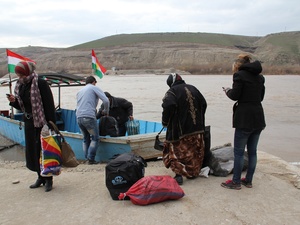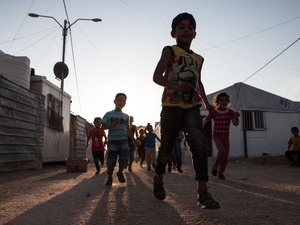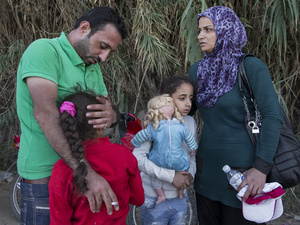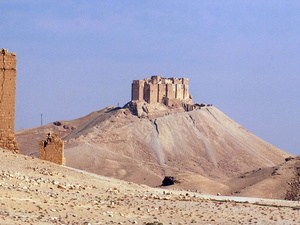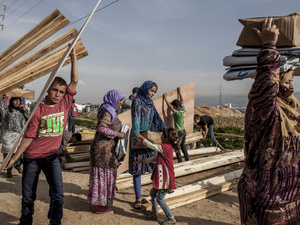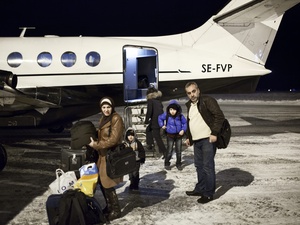UNHCR renews call for urgent funding to help Syrian refugees
UNHCR renews call for urgent funding to help Syrian refugees
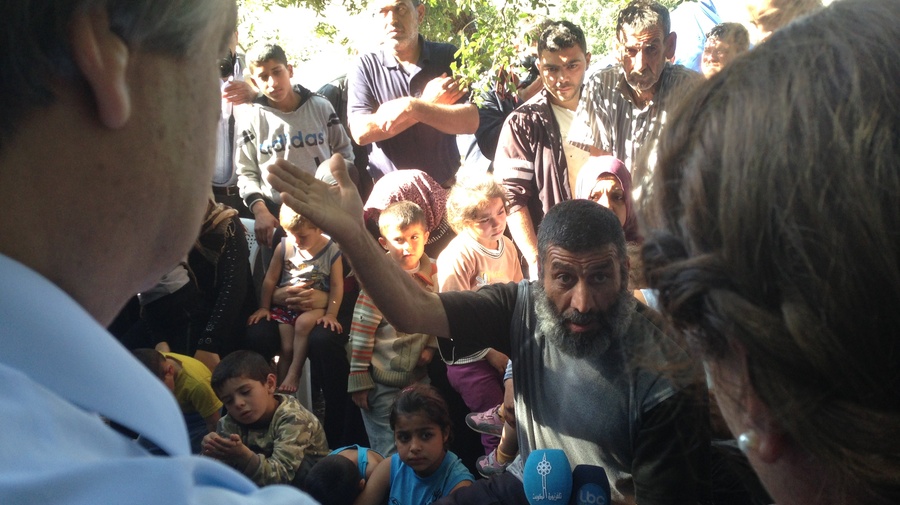
UN High Commissioner for Refugees António Guterres meets with Syrian refugees living near Ketermaya, southern Lebanon.
BEIRUT, Lebanon, March 15 (UNHCR) - UN High Commissioner for Refugees António Guterres today reiterated his call for governments to create special funds to support Syrian refugees and the countries that host them.
Speaking to journalists in Beirut on the second anniversary of the start of the Syria conflict, he warned that urgently needed support could be denied to refugees and the region could become unstable unless fresh funds were rapidly made available.
Guterres said there was a widening gap between the needs and the resources available. "There is no way a gap of this magnitude can be filled with current humanitarian budgets," he stressed, while adding that the growing tragedy in Syria and the region was "a threat to international peace and security."
If the conflict continued, he warned, "there will be an explosion in the Middle East."
The High Commissioner said there was currently a gap of US$700 million in what humanitarian organizations such as UNHCR needed to meet the basic needs of more than 1.1 million refugees and what they had received. There is a 70 per cent shortfall. He expressed his hope that funds pledged at conference last month in Kuwait would materialize soon and be devoted to the UN humanitarian response.
Guterres also called on the international community to do more to ease the strain on host governments. Lebanon, which has taken in more than 350,000 refugees, has witnessed a 10 per cent increase in its population over the past year. "This conflict represents an existential threat to Lebanon," he said.

Guterres listens to Syrian refugees as local dignitaries and others also look on. He met a group of 15 families who were offered a place to stay by a Lebanese landowner.
In meetings with refugees in Ketermaya, south of Beirut, and in Tripoli, Guterres heard about the challenges in finding housing and the high rents they face. The lack of funding is holding up innovative projects aimed at identifying new forms of shelter and renovating existing accommodation.
Refugee families told the High Commissioner their children have missed out on school for up two years. Partners like UNICEF have organized remedial classes in some parts of Lebanon, but would like to get more children to attend schools full-time.
Health experts, meanwhile, told Guterres about the risk of diarrhoea, hepatitis A and scabies if urgently needed water and sanitation projects are not supported. Currently, UNHCR and partners are covering 85 per cent of the costs of basic health care of refugees attending health clinics.
"Lebanon needs massive support," he said. "It cannot do it alone."
The Regional Response Plan for Syrian Refugees, with a budget of US$1 billion, details the coordinated response of 55 NGOs and UN agencies, led by UNHCR. There are currently 1.126 million Syrian refugees registered or awaiting registration in Jordan, Lebanon, Iraq, Turkey and Egypt, while new refugees arrive at a rate of about 8,000 a day.
Guterres is on the last leg of a visit to the region. He visited Turkey and Jordan earlier in the week.


